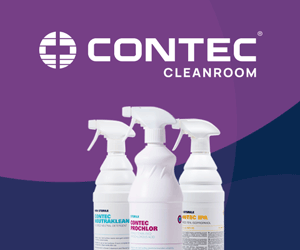Non-toxic disinfectant could tackle HAIs
Canadian team finds Akwaton is fast-acting and environmentally safe
A new disinfectant called Akwaton, which is effective at very low concentrations, could help control hospital-acquired infections such as Clostridium difficile, according to the findings of a study by a Canadian university team.
Researchers from the Université de Saint-Boniface in Winnipeg, Canada tested Akwaton against bacterial spores that attach to surfaces and are difficult to destroy. Previous work by the group has shown that the disinfectant is also effective at low concentrations against strains of MRSA and Escherichia coli.
The spores of C. difficile can survive on surfaces for a long time. They are heat-tolerant and can survive a number of years in a dehydrated state before they are reactivated. Most chemical disinfectants control or prevent spore growth rather than irreversibly destroying the spores.
The current study, reported online in the Journal of Medical Microbiology1, revealed that Akwaton was able to destroy Bacillus subtilis bacterial spores, suspended in water and attached to stainless steel or glass surfaces, at concentrations well below 1% after just 90 seconds of treatment. It was equally as effective at more dilute concentrations (below 0.1%) if left to act for longer periods.
Leading researcher Mathias Oulé explained the advantages of Akwaton over other chemical compounds currently used against bacterial spores.
“Most disinfectants have to be applied at much higher concentrations – typically between 4–10% – to get rid of bacterial spores properly. Unfortunately such high levels of these compounds may also be harmful to humans and other animals. Akwaton is non-corrosive, non-irritable, odourless and is effective at very low concentrations,” he said.
“Bacterial spores demonstrate a remarkable resistance to physical and chemical agents as well as ordinary antiseptics. On top of this, micro-organisms are becoming increasingly resistant to disinfectants as well as antibiotics. Our latest study shows Akwaton is effective at destroying these spores as well as bacteria that are known problems in healthcare environments.”
Akwaton is fast-acting and non-toxic for humans at low concentrations. Other studies have shown that it is also environmentally safe.
“All these properties make it an ideal disinfectant for hospitals and laboratories. It may also have great value in the food industry to tackle spore-forming food pathogens such as Bacillus cereus and Clostridium perfringens,” said Oulé.
1. Dr Oulé's paper is entitled: Akwaton, Polyhexamethylene-Guanidine Hydrochloride-Based Sporicidal Disinfectant: A Novel Tool to Fight Bacterial Spores and Nosocomial Infections




